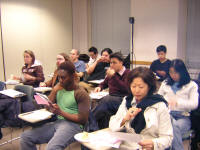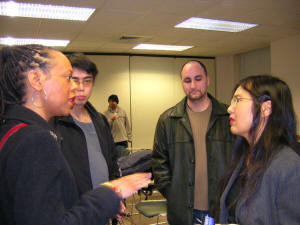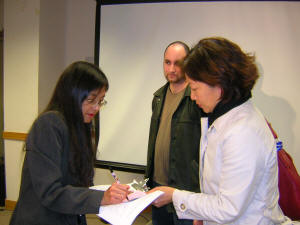
As a musical form without the distraction of a melody but a well-defined beat, rap offers an opportunity to explore the rhythmic and musical aspects of a language. An interesting case study is rap in Japanese, which has completely different syntax, vocabulary, accent patterns, and phonemes from English. Several pioneers of Japanese rap initially thought that rapping in their own language was impossible: while the most striking aural patterns in American rap are the rhymes and stress accents, which punctuate and vary the rhythm, Japanese verbal arts have traditionally not emphasized rhyming, and the language lacks stress accents. Therefore, Japanese rappers had to find ways of exploiting the grammatical and phonological resources of their own language to create flow while upholding a rap aesthetic.

Drawn from a combination of interviews with rappers, transcription, and analysis, this paper explores the problems that Japanese rappers initially faced in rhyming and rhythm, the solutions they have applied, and the innovations they have made. To form rhymes, Japanese rappers capitalize on their varied vocabulary, enriched from Chinese, Japanese, and Western sources. Rappers also take advantage of the pitch accents of the Japanese language to create a melodious flow and exploit the rhythms inherent in certain moras. Hence, the rappers have shown that Japanese is “unsuitable” for rap only when viewed with the restrictive notion that the sound of the English language itself, with its stress accents and poetic feet, is the kata, or form, rather than the hip-hop sound. Furthermore, they have reflected the culture by employing such hallmarks of Japanese communication as image-painting, subtle turns of phrase, and onomatopoeia, creating raps that are not only musical but whose sensibility would be lost if translated into English.

The paper thus explores the issue of language in adapting a global genre and the process in which imitation leads to innovation. As studies of the interaction of the features of a language and rap remain relatively neglected, the author suggests potential areas for further investigation.
Online Notes

